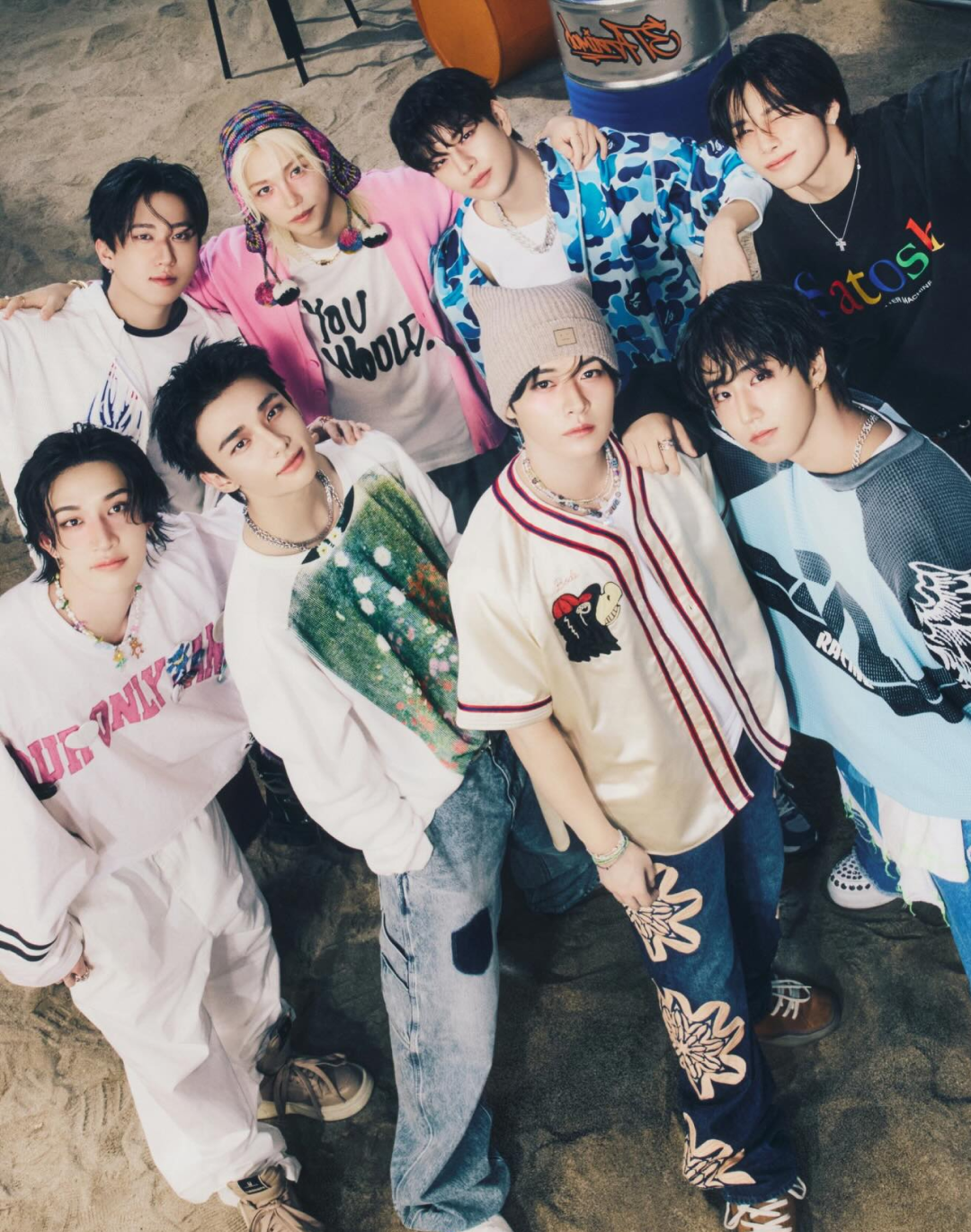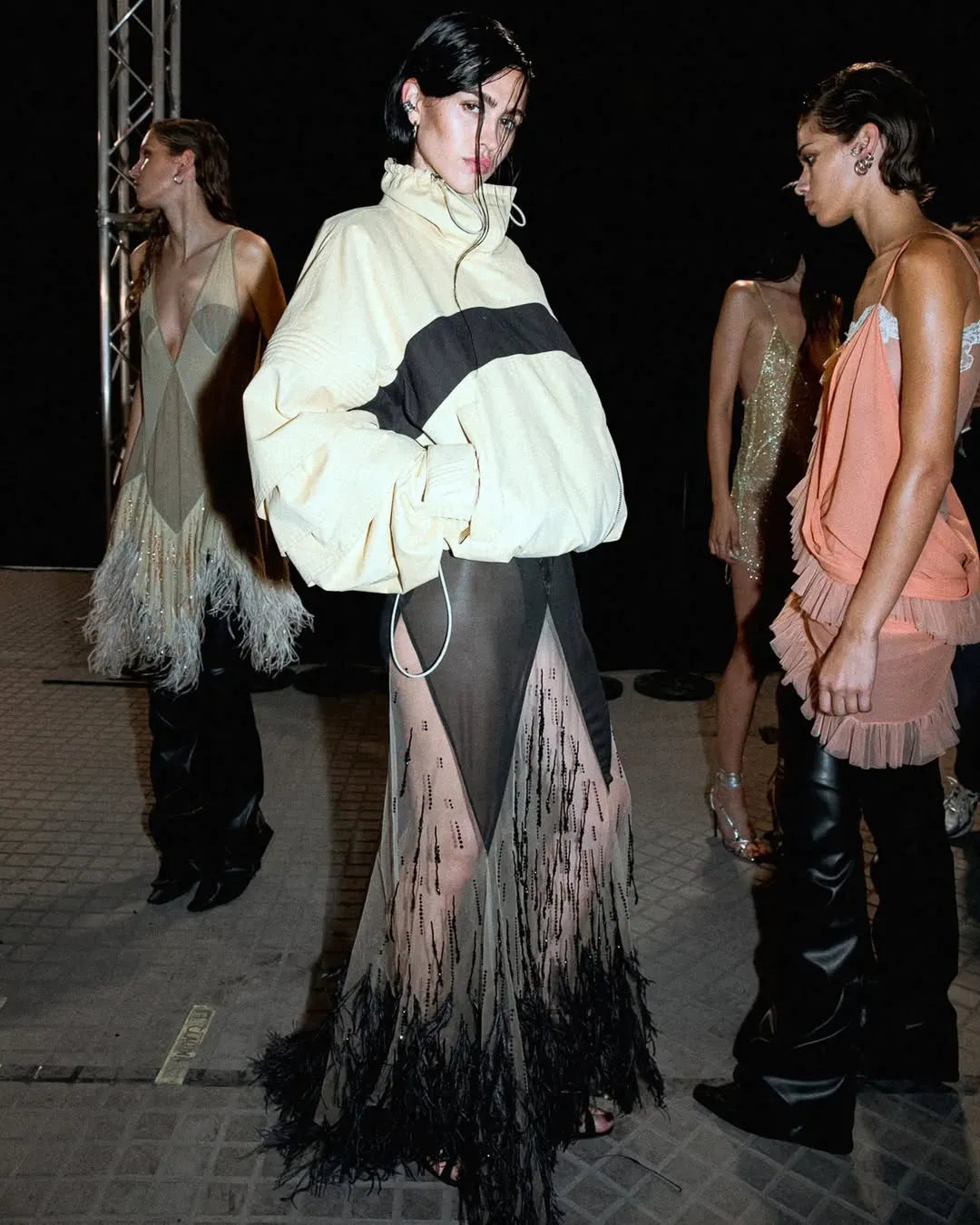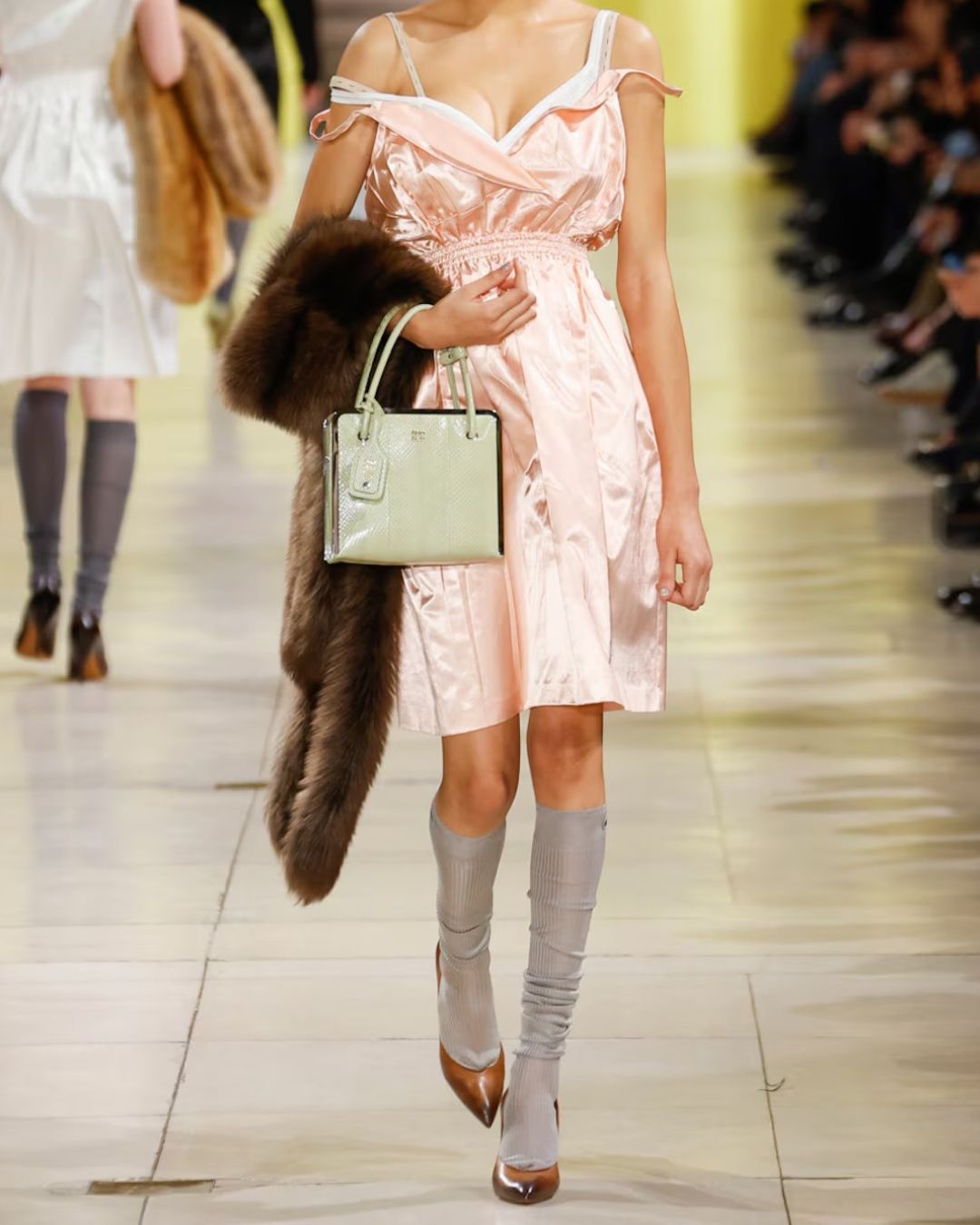
Would you ever wear a logo down there? Men too will say «My eyes are up there»
«You want to put the logo somewhere someone’s gonna look», once said Tom Ford in an interview, revealing that his jeans had an almost invisible TF monogram sewn onto the fly. One of those micro-details that are very "Fordian," so to speak, where discretion and boldness mix – after all, it was the Texan designer who cemented the "Sex Sells" principle in fashion. Similarly, a laced closure fastens the fly of Ludovic de Saint Sernin’s pants (who included a crotch logo in his SS22) and has already become one of his most recognizable signatures, along with the extremely low waist of the pants themselves. But while the tiny stitching on Tom Ford's jeans is what we would call an Easter egg in Internet jargon, a hidden detail that can only be seen if you look for it, the story of logos placed on the body's most sensitive areas is not driven by the same sense of subtlety. Quite the opposite. According to Vogue, which recently discussed the persistence of crotch logos in today's fashion, it was Nigo who first slapped A Bathing Ape’s logo on the front of his pants in 2002 – around the same time logos from Evisu and Juicy Couture appeared on the back of jeans and sweatpants. The aim of this placement wasn’t exactly sophistication, so it’s no surprise that in less than a decade, these logos spread to the cheekier fringes of streetwear, aimed at young people whose uniform always included sweatpants or oversized jeans of some kind. But how did these strategically placed logos survive the decade of streetwear that followed?
It could be said, in fact, that the streetwear boom, bringing sportswear to an increasingly mainstream market, may have sanitized streetwear itself, increasing the use of logos but trying to make individual pieces relatively more refined. So much so that from that now distant era, the only crotch logos remembered are those of Pyrex and Boy London. But they actually appeared elsewhere too: in one of Riccardo Tisci’s early collections for Givenchy, for example, the star that would later become one of the brand's unofficial logos (bearing a strong resemblance to the logo on Nigo's jeans worn by Pharrell for years) was already placed strategically, but outside of fashion shows, the brand would produce sweatpants with the real logo, which are still sold today. Years later, in the very first Off-White collection, for example, and the SS14 of Hood by Air.
The trend had already begun: in FW15, Philipp Plein embroidered the word “Warrior” on the front of his models' pants. From this period onward, the crotch logo disappeared from runways but not from the streets or boutiques: surviving mostly on sweatpants, branded or not, the crotch logo continued an underground existence, almost never appearing in runway collections but still sold by various fashion brands creating a more visually exuberant sportswear. As with Celine, for instance, one of their best-selling carry-over items are track pants with the logo on the front, or Vetements, which around FW17 began printing their logo on the fly of jeans. DSQUARED2 featured both cases (on one side sweatpants with the word “Icon” and on the other, jeans with a red label sewn onto the fly) as well as Dolce&Gabbana, which, in addition to sweatpants, included their logo on pants decorated with a Marina print.
But if there’s one brand that firmly revived this style, it's Corteiz, founded in 2017 by Clint Obgenna, who turned pants with the crotch logo into a phenomenon. According to Vogue: «To date, “Corteiz jogger” and “Corteiz shorts” are mentioned in 3.5 million and 5.1 million TikTok videos, respectively». And in general, several brands born in a streetwear context and later elevated have kept that logo in their continuous collections: think for example of Rhude and its shorts, the SS25 of AWGE that A$AP Rocky brought to Paris, but especially Fear of God Essentials, the basics line by Jerry Lorenzo that for years has placed its logo at the exact center of its pants. More recently, we've seen the crotch logo return to the FW24 runway of Diesel, while other brands have been somewhat more indirect in placing theirs in the same season: Louis Gabriel Nouchi, for example, placed his on the elastic waistband of pants, but with a waistband low enough that the positioning left room for imagination; the “Miss Dior” lettering printed on several skirts from the FW24 collection is located more or less in that body area, while in Balenciaga’s last show in Shanghai, logo belts were so low on the hips that they were essentially in the same position as a crotch logo. In some ways, even Jordanluca’s “wet” jeans belong to this trend – although they lack a visible logo.
To sum it up, the style exists outside of the flashiest streetwear insofar as a certain brand engages with the Y2K world that has so heavily influenced past and present collections in recent years. From the perspective of someone who has seen brands come and go in their eternal cycle, one might say that only in cases like that of Corteiz will the crotch logo have a raison d'être, that is, in cases where its presence is supported by a particularly high level of cultural credibility. Even though one cannot deny that in recent times, the obsession with logoed underwear, whether it's Willy Chevarria's fake-worn boxers, Gucci's short shorts, Coperni’s suggestive front pocket, or Miu Miu's visible underwear, fashion seems to have developed a fascination with the anatomical areas below the equator.
































































